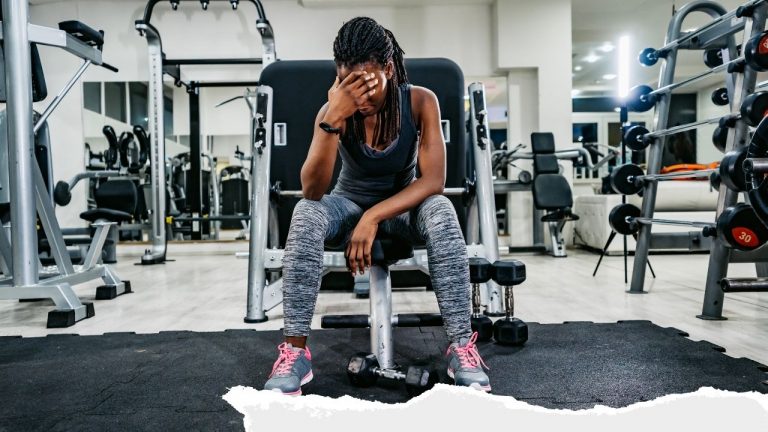How Much Should You Work Out in a Day - The Definitive Guide
There is a lot of conflicting information about how much you should work out in a day. Some people say that you should work out for hours on end, while others claim that short, high-intensity workouts are the best way to go. So, what’s the truth? How much should you be working out each day? This article will explore the different workout regimens and help you figure out which one is best for you!
How much should you work out in a day?

There’s no one-size-fits-all answer to this question, as it depends on your fitness goals and level of physical activity. However, the consensus is that adults should aim for at least 30 minutes of moderate exercise per day. This could involve activities like brisk walking, swimming, or biking. If you’re looking to boost your fitness levels, you may need to increase your workout time to 60 minutes. And if you’re trying to lose weight, you’ll need to combine regular exercise with a healthy diet. So how much should you work out in a day? Ultimately, it depends on your fitness goals and lifestyle.
How much is too little, how much is too much?
How much you work out also depends on how active you are during the day. If you have a sedentary job, you’ll need to make a greater effort to get in your daily dose of exercise. On the other hand, if you’re constantly on the go, you might be able to get away with working out less. The key is to find a balance that works for you.
Too little: Not working out at all, or only doing so sporadically, won’t do much for your health or fitness levels.
Too much: Likewise, working out too much can also be detrimental to your health. It’s important to listen to your body and take breaks when needed.
How to find the right balance?

The best way to figure out how much you should work out is to consult with a doctor or certified personal trainer. They can help you create a customized workout plan that meets your specific needs and goals. And if you’re new to exercise, they can give you guidance on getting started.
How to know if you’re not working out enough or too much?
Everyone’s fitness journey is different, so there’s no definitive answer to this question. However, a few general guidelines can help you figure out if you’re on the right track. For starters, it’s important to listen to your body. If you’re constantly feeling tired or sore, you may be working out too much. On the other hand, if you’re not seeing any results after several weeks of regular exercise, you may need to ramp up your efforts.

Additionally, it’s a good idea to consult with a certified personal trainer or fitness coach. They can help you assess your current fitness level and tailor a workout plan that meets your needs. Ultimately, the best way to know if you’re working out is to listen to your body and consult with a professional.
What is the best type of workout for different people and their needs?

Working out is important for everyone, no matter what their goals are. For some people, the best workout helps them build muscle, while for others, the best workout is one that burns fat. There are various exercises that can help people achieve their goals, and the best activity for each person may vary depending on their individual needs. However, some experts believe that the best workout for most people is a combination of cardio and strength training. Cardio exercises help increase heart rate and breathing, and they can be further divided into low-intensity and high-intensity activities. Low-intensity activities, such as walking or light jogging, are ideal for beginners or people looking for a gentle workout. High-intensity activities, such as running or sprinting, are better for people who are already physically fit. Strength training helps build muscle and can be performed using bodyweight, free weights, or resistance bands.
FAQS on How Much Should You Work Out in a Day
With all of the talk about health and fitness these days, it’s no wonder that people are curious about how much they should be working out. After all, there’s a lot of conflicting information, and it can be tough to sort through all of the noise. So, to help clear things up, here are the answers to some frequently asked questions about how much you should work out in a day.
Is a 1-hour workout a day enough?
The answer to this question depends on various factors, including your fitness goals and your current level of activity. If you’re relatively inactive and looking to improve your overall health, working out for one hour a day is an excellent place to start. However, if you’re trying to lose weight or build muscle, you may need to increase your workout time to see results. Additionally, if you’re already physically active, you may only need to work out for 30 minutes a day to maintain your current fitness level. Ultimately, the best way to determine how much you should work out is to consult with a doctor or certified personal trainer. They can help you create a customized workout plan that meets your specific needs.
How many days a week should you work out?
Again, there is no definitive answer to this question. However, most experts recommend working out at least three times a week to see results. Additionally, it’s important to allow your body to rest and recover between workouts. Working out every day is not necessarily the best approach, especially if you’re starting. If you’re too sore from working out on certain days, then it’s excellent to take a break. Just be sure to get back into your routine as soon as possible.
What are the best exercises to do every day?
The best exercises to do every day depending on your fitness goals. If you’re trying to lose weight, cardio exercises such as walking, jogging, or swimming are good choices. If you’re looking to build muscle, strength-training exercises such as lifting weights or doing bodyweight exercises are better options. Ultimately, the best way to determine which exercises are right for you is to consult with a doctor or certified personal trainer. They can help you create a customized workout plan that meets your specific needs.
How much exercise per day to lose weight?
The amount of exercise you need to lose weight depends on various factors, including your current weight, your fitness goals, and your activity level. Generally speaking, most people need to exercise for at least 30 minutes a day to see results. However, if you’re trying to lose a significant amount of weight, you may need to increase your workout time to see results. Additionally, if you’re already physically active, you may only need to work out for 30 minutes a day to maintain your current weight. Ultimately, the best way to determine how much you should work out is to consult with a doctor or certified personal trainer. They can help you create a customized workout plan that meets your specific needs.
Is it better to work out in the morning or evening?
There is no definitive answer to this question. Some people find that they have more energy to work out in the morning, while others prefer to work out in the evening. Ultimately, it’s important to choose a time that works best for you and your schedule. If you’re too tired to work out in the morning, working out in the evening may be a better option. However, if you have more energy in the morning, working out at that time may be a better option. Ultimately, the best way to determine which time is best for you is to experiment and see what works best.
Conclusion
So, how much exercise is the right amount for you? The answer to that question will vary from person to person and day to day. Ultimately, listening to your body is the best way to determine how much activity you need each day. If you’re starting, shoot for 150 minutes of moderate aerobic exercise per week and gradually increase as your body allows. And remember – rest days are essential, too! Take a break and let your muscles recover so you can come back stronger than ever.



